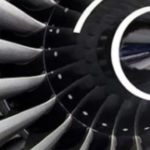Boeing’s 737 MAX plane has received clearance to resume flying in Britain and Europe as the European Union Aviation Safety Agency (EASA) and the UK’s Civil Aviation Agency (CAA) approved the recertification of the aircraft.
The move follows the recertification of the Boeing 737 MAX in the USA in November, which was followed with a return to the skies in Brazil and Canada.
The decision to lift the ban on the MAX was the first significant aviation safety decision made by the UK since formally leaving the EU and EASA on December 31, 2020.
Software system was a contributing factor in crashes
The plane was grounded in March 2019 following two crashes which killed a total of 346 people. The aircraft’s flight control software system, MCAS was found to be a contributing factor in both crashes. The automated system had ordered repeated dives based on inaccurate data readings from a single sensor. MCAS repeatedly forced the nose of the aircraft downwards, when the pilots were trying to gain height, pushing both the Lion Air and Ethiopian Airlines’ planes into unrecoverable dives.
But Patrick Ky, Executive Director of the European Union Aviation Safety Agency (EASA), said the decision represented “a significant milestone on a long road.”
He said: “Following extensive analysis by EASA, we have determined that the 737 MAX can safely return to service.”
Return to skies questioned by victims’ families
The move to return the MAX to service had been questioned by victims’ families, a former Boeing employee and aviation safety expert Capt Chelsey “Sully” Sullenberger.
Ky said the information received included “whistleblower reports that we thoroughly analysed and took into account.”
Virginie Fricaudet, who lost her 38-year-old brother Xavier in the Ethiopia Airlines crash, said moves to reinstate the MAX were “premature, inappropriate and even dangerous” Fricaudet is president of the European victims’ organisation “Flight ET 302 Solidarity and Justice” based in France. She said many issues surrounding the aircraft still remain unanswered, even in light of the possible ungrounding.
In a letter to the European Parliament, Fricaudet, posed dozens of questions on behalf of the victims’ organisation that need to be addressed – ranging from the transparency of EASA to its independence in making an anticipated decision to unground the MAX and, in particular, whether any guarantees of safety of the Boeing 737 MAX are sufficient for future air safety.
Robert A Clifford, founder of Clifford Law Offices in Chicago and lead counsel of the litigation against Boeing in federal district court in Chicago represents 72 families in the crash of the Ethiopian flight said “more questions” had been raised from a settlement by the US Department of Justice which fined Boeing $246.6 million but terminated any criminal action against any Boeing employees or executives.
Factory was “choatic and dysfunctional”
A former senior manager at Boeing’s 737 plant in Seattle also raised new concerns over the safety of the company’s 737 Max. Ed Pierson, who was a witness during congressional hearings on the MAX disasters, claimed that further investigation of electrical issues and production quality problems at the 737 factory was badly needed.
He testified that during 2018, the factory was in a “chaotic” and “dysfunctional” state and claimed staff struggled under pressure from managers to build new planes as quickly as possible. Boeing has said his claims were unfounded.
Pierson insisted that the possibility of production defects playing a role in the accidents had not been addressed by regulators and claimed this could lead to further tragedies involving the MAX or even a previous version of the 737.
Pierson’s concerns have been backed by aviation safety campaigner Captain Chelsey Sullenberger, one of the pilots who safely ditched an Airbus plane in the Hudson river off Manhattan in 2009 after it lost engine power following a bird strike.
Hudson river hero: warning systems “not up to modern standards”
Sullenberger believes modifications are needed to warning systems aboard the plane, which were carried over from a previous version of the 737 and were “not up to modern standards”.
He added: “There are many critically important unanswered questions that must be answered. Boeing and the Federal Aviation Administration (FAA) must finally become more transparent, and begin to provide information and data, so that independent experts can determine the worthiness of the work that’s been done.”
Subscribe to the FINN weekly newsletter

